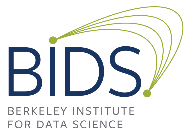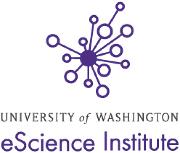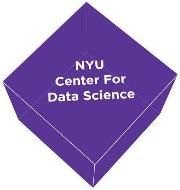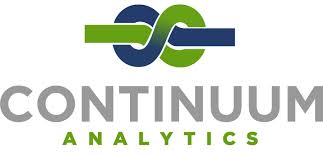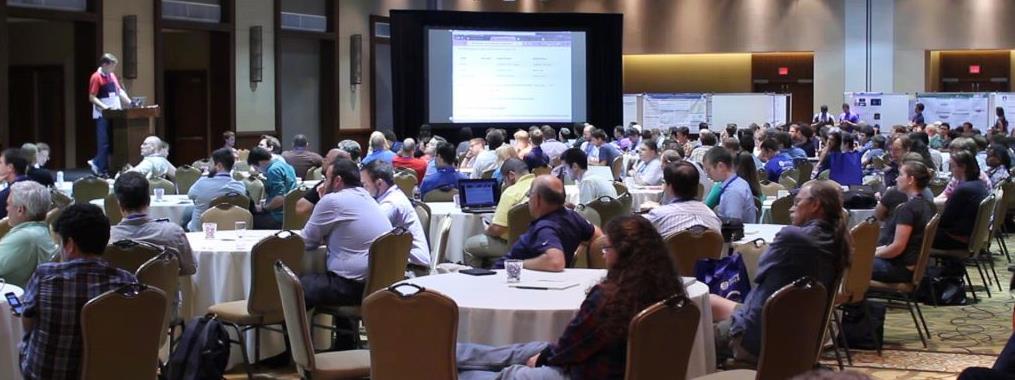SciPy 2015 General Conference
Talk and Poster Presentations
Talk and Poster Selections are in for SciPy 2015!
SciPy 2015, the fourteenth annual Scientific Computing with Python conference, will be held this July 6th-12th in Austin, Texas. SciPy is a community dedicated to the advancement of scientific computing through open source Python software for mathematics, science, and engineering. The annual SciPy Conference allows participants from academic, commercial, and governmental organizations to showcase their latest projects, learn from skilled users and developers, and collaborate on code development.
We had a record number of submissions for this year's conference, and the diversity and caliber of this year's topics is not to be missed. See a list of the talks and posters here and see the talk and poster schedule here.
Specialized Tracks
This year we are happy to announce two specialized tracks that run in parallel to the general conference track:
Python in Data Science
The explosion of interest in the field of data science has increased demand for methods to analyze massive and heterogeneous data sources in the search for meaning and pattern identification. Given its flexibility and power, Python has become a central component of the data science toolset as reflected in a number of actively developed packages in the areas of knowledge discovery, data mining, machine learning and natural language processing, among others. This special track will bring together researchers, developers, and industry analysts to focus on efforts to promote and develop Python for data science.
Quantitative Finance and Computational Social Sciences
The frontiers of finance and the computational social sciences have seen a revolution in the widespread adoption of new computationally based methods for the analysis of markets and other socioeconomic systems. From the application of agent based modeling of investor behavior, to the microsimulation of urban segregation processes, analysis of social networks, and the macroeconometric modeling of international economic growth and inequality, Python is increasingly adopted as the computational language of choice. This specialized track will focus on Python libraries, tools, and techniques in quantitative finance and computational social science.
Domain-specific Mini-symposia
Introduced in 2012, mini-symposia are held to discuss scientific computing applied to a specific scientific domain/industry during a half afternoon after the general conference. Their goal is to promote industry specific libraries and tools, and gather people with similar interests for discussions.
Mini-symposia on the following topics will take place this year:
- Astronomy and astrophysics
- GIS
- Geophysics
- Oceanography and Meteorology
- Computational Life and Medical Sciences
- Visualization, Vision, and Imaging
- Engineering
Planning for Next Year's Proposal Submission?
The call for proposals is typically open from the end of January through the end of March for each year's conference. Here's what you'll need for a submission:
The Brief Description: The brief description you fill out below will appear in the online program.
The Detailed Abstract: Your placement in the program will be based on reviews of your detailed abstract. This should be a 150-300 word detailed outline of your presentation. This detailed abstract should concisely describe software of interest to the SciPy community, tools or techniques for more effective computing, or how scientific Python was applied to solve a research problem. A traditional background/motivation, methods, results, and conclusion structure is encouraged but not required. Links to project websites, source code repositories, figures, full papers, and evidence of public speaking ability are encouraged.



